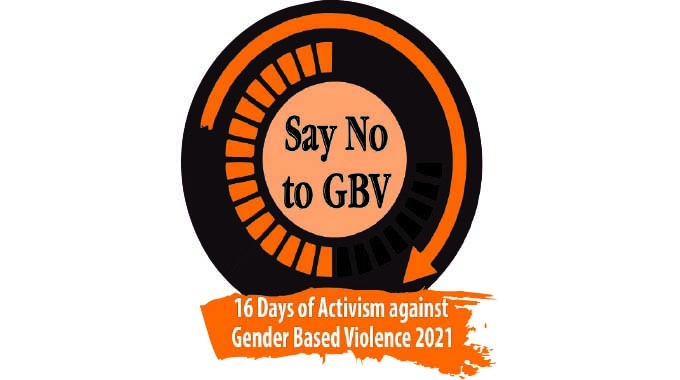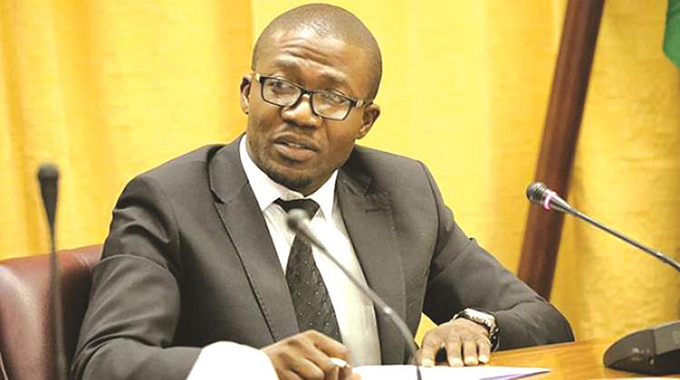16 Days of Activism – Zim creates safe, empowering spaces for women and girls

Sifelani Tsiko-Agric, Environment & Innovations Editor
Zimbabwe kicked off commemorations to mark the 16 Days of Activism against Gender-based Violence on November 25 with a launch of the Epworth Safe Market Space and One Stop Centre, which aims to facilitate women’s economic empowerment, leadership and security within public spaces by advancing zero tolerance to all forms of sexual and gender-based violence (SGBV).
The launch saw the country joining the world to mark the events which are being held under the theme: “Orange the World: End Violence against Women Now!”
The campaign starts on 25 November and ends on December 10.
Women in Epworth, a sprawling location south–east of Harare, hailed the opening of the Safe Market Space and a One Stop Centre, saying it was an important step for them to fight sexual and gender-based violence (SGBV).
Gracious Mugariwa (34), a vendor from OverSpill in Epworth said: “We have been selling our products outside, on the roadside in plastic sheds.
The place was not safe and not productive for us.
“We were exposed to youths smoking, drinking beer and violent people. We could easily be caught up in violent encounters. Where we were selling our stuff, the place was not attracting clients, it was not hygienic and safe for our children.”
But with the launch of the Epworth Safe Market Space and One Stop Centre, things are set to change for her.
“As for me, I’m so excited about the launch of this centre,” said Mugariwa. “I can’t wait to start working in our new market. I feel like a child on a Christmas morning, wearing a new dress and hoping for good times to roll.”
Judith Chitasha (38), another vendor from Epworth, said the new market had clean toilets and a pleasant working environment which would enhance cleanliness and hygiene, while at the same time offering services for counselling and other health needs.
“During the rainy season we will now be able to continue working in a place that’s protected, safe and which does not expose us to bad weather conditions,” she said. “Even our girl child can also now work and support us in a safe space. Where we were operating from previously, there was rampant abuse and thefts.
“I hope to boost my business by investing more into items I sell. The business management trainings we got were very helpful and I hope to sell dried vegetables, jam and other products I never had before.”
The Safe Market initiative is a component of the Safer Cities Initiative, a UN Women global programme which supports local authorities to develop and implement safety strategies.
This initiative is also a response to call by the Commission on the Status of Women on governments to prevent sexual and gender-based violence (SGBV) in public places.
Speaking at the launch of the safe market space and one-stop centre, Dr Alex Gasasira, UN Resident Coordinator ad Interim said high levels of SGBV in Zimbabwe had been compounded by the COVID-19 pandemic and the protracted national lockdowns.
He said the Covid-19 crisis had resulted in increased school dropouts, resulting in increased child/early marriage and a consequent alarming increase in teenage pregnancies.
“Decades of hard-won progress are at risk of being reversed unless we take decisive steps to reinforce gender equality and the economic empowerment of women,” said Dr Gasasira.
“The Safe Market Model demonstrated here is an important step towards facilitating women’s economic empowerment, leadership, and security within public spaces by advancing zero tolerance to all forms of SGBV.”
The safe market, which comprises 96 secure well-lit stalls, children’s resting room and a play area, separate female and male ablution facilities and has clean water facilities, is expected to serve as a model in the country’s collective efforts to prevent SGBV.
Apart from the safe market, the project has a UNFPA supported One Stop Centre, which provides SGBV survivors with essential services in a timely, safe and confidential way.
The static One Stop Centre model addresses a number of challenges related to SGBV service access, by providing multi-sectoral services, including health, psychosocial, safety and security, and legal under one roof in a survivor cantered manner.
The safe market and the one stop centre are among the various actions implemented under the auspices of the Spotlight Initiative to end violence against women and girls worldwide.
The EU invested US$500 million globally and about US$30 million was allocated to Zimbabwe to help the country to tackle GBV in public and private spheres.
“The safe market is the first of its kind in Zimbabwe and we are proud to be associated with this progressive development that will see women engage in economic activities in a safe and clean environment that also promotes the well-being of children,” said Frank Porte, head of Cooperation, Delegation of the EU in Zimbabwe.
“Women’s safety in public spaces is a huge area of concern because it affects women’s ability to participate in public life and to contribute to the social, economic and political development of the country.”
Porte called upon the Government and all its arms to step up the fight against child marriages which were a harmful practice that violated the rights and roles of children, leading to increased poverty.
Women Affairs, Community, Small and Medium Enterprise Development Deputy Minister Jennifer Mhlanga said: “Economic empowerment of women is integral to any sustainable approach to eradicating violence against women as studies show that women who control their own resources are less vulnerable to being victimised because of their gender.”
Since the launch of the Spotlight Initiative in 2019, some 3,8 million beneficiaries, including 2,3 million women and girls in Zimbabwe received various services.
Cases of gender-based violence reported through the national GBV hotline are said to have tripled during the Covid-19 lockdowns from 1 930 in 2019 to more than 5 507 in 2020.
The cases were rising despite the existence of progressive laws in the country.
Activists said there was need for the Government to establish more specialised courts to deal with sexual offences and ensure speedy trials of offenders.
Supporting key institutions such as the police and judiciary with adequate resources was also critical in the fight against GBV.
Globally, nearly 1 in 3 women have been abused in their lifetime.
In times of crises, the numbers rise, as seen during the COVID-19 pandemic and recent humanitarian crises, conflicts and climate disasters.
A new report from UN Women, based on data from 13 countries since the pandemic, shows that 2 in 3 women reported that they or a woman they know experienced some form of violence and are more likely to face food insecurity.
Only 1 in 10 women said that victims would go to the police for help.
Experts say promoting survivor-centred essential services across policing, justice, health, and social sectors and sufficient financing for the women’s rights agenda could help end gender-based violence.








Comments